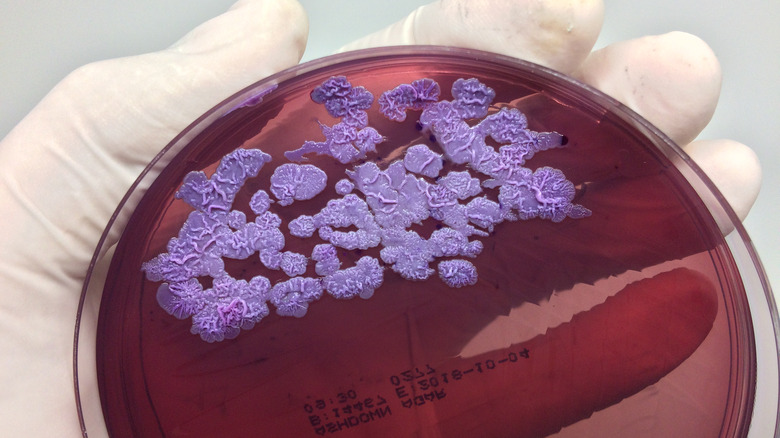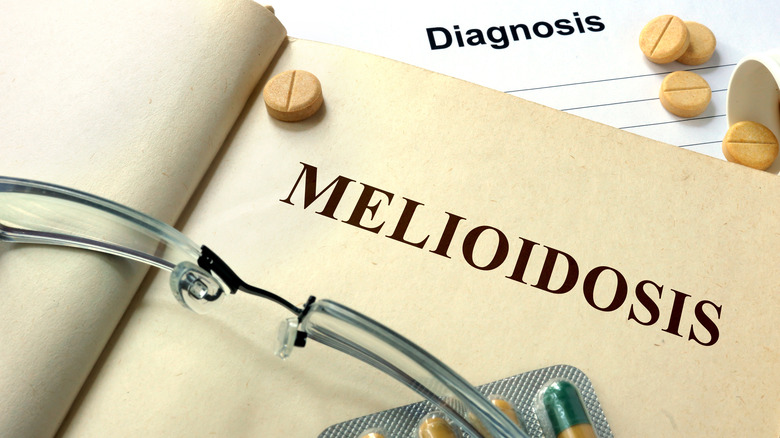What We Know About The Rare Illness-Causing Bacteria In Parts Of Mississippi
Officials have discovered rare bacteria living in water and soil samples in coastal regions of Mississippi. The Centers for Disease Control and Prevention (CDC) reports that this is the first time the bacteria, Burkholderia pseudomallei (B. pseudomallei), has been detected in the environment in the United States.
B. pseudomallei is typically found in tropical regions including South and Southeast Asia, the Virgin Islands, and parts of Central and South America. However, calculations indicate that conditions in the Gulf Coast area are favorable for the growth of the bacteria (via the CDC). According to WebMD, B. pseudomallei can live in acidic environments and water that has high concentrations of salt.
The bacteria can infect humans and animals through mucous membranes, open sores, or wounds on the skin. It can also enter the body through inhalation or by being swallowed. The CDC notes that the bacteria is not considered to be transmissible through respiratory droplets, per WebMD.
B. pseudomallei can cause melioidosis
B. pseudomallei can cause a rare bacterial infection called melioidosis. Symptoms include fever, abscesses, sores, difficulty breathing, joint pain, a cough, and loss of appetite. A widespread infection could result in an infection of the brain or central nervous system. WebMD reports that symptoms appear within two to four weeks after exposure to the bacteria. Person-to-person transmission is not likely, but experts noted the infection was sexually transmitted in a few cases. The CDC reports that 10% to 50% of worldwide cases are fatal. While anyone can become infected with melioidosis, people with cancer, liver disease, diabetes, kidney disease, chronic lung diseases, and the blood disorder Thalassemia are at a higher risk (via WebMD).
People who are concerned or considered at risk should avoid contact with shallow or muddy water, especially after heavy rain. Protect open wounds on the skin, and wash the skin if it comes into contact with water or soil. The CDC also advises the public not to drink water from lakes, rivers, ponds, streams, or shallow wells. Contact your healthcare provider if you think you have symptoms.
Experts don't know how long the bacteria has been in the environment prior to July 2020, when one person in Mississippi was diagnosed with melioidosis. A second person was diagnosed in May 2022, prompting an investigation. Both individuals had not traveled outside the U.S. Each had risk factors for melioidosis and recovered after receiving antibiotics (via the CDC).


